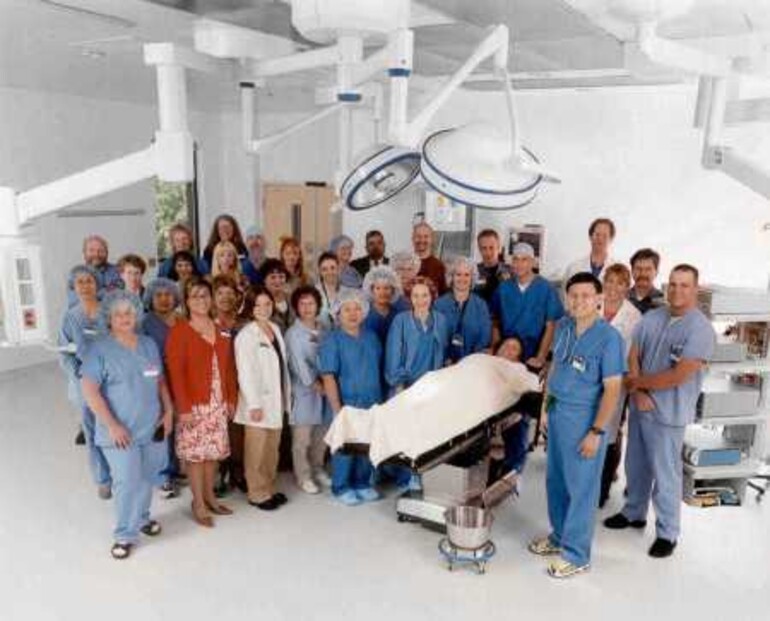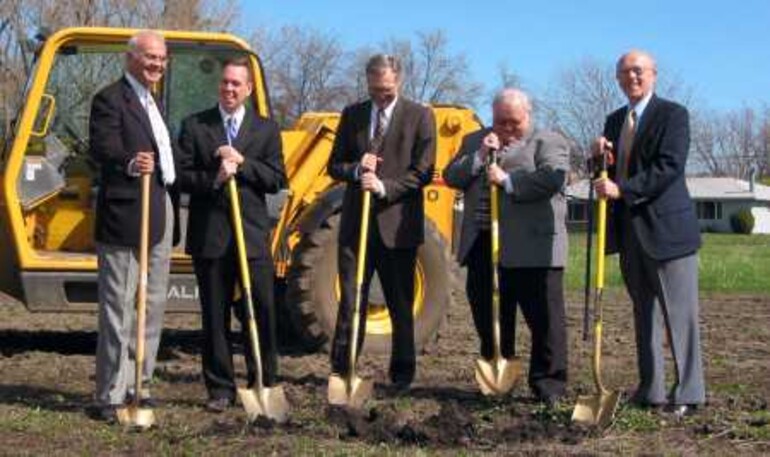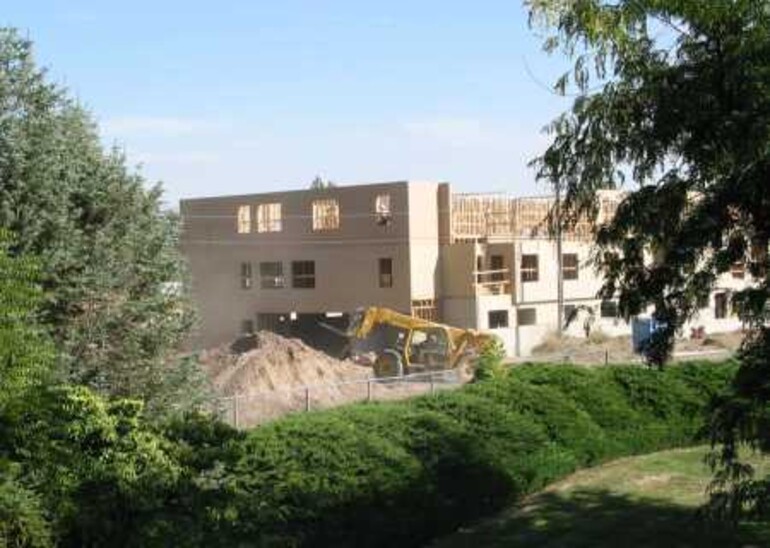There are three things we know. Our patients are aging rapidly. They are using the hospital more, not less. And they expect—and deserve—new and expanded treatment options. With these certainties in mind, Adventist Health is building and rebuilding to improve safety and service in our communities.
When Adventist Medical Center (AMC) conducted a study in 2002 to forecast future volume, the results were clear: the Portland, Oregon, facility was short on space. The emergency room was operating at capacity with no room for growth. Surgical suites were bursting at the seams. And additional physician offices were needed.
That was then. Today, the hospital is home to two new state-of-the-art surgical suites that offer expanded capacity as well as improved safety and efficiency for both patients and staff. Not only are the 750-square-foot rooms nearly twice the size of a standard surgical suite, the technology they offer is truly exceptional. With the touch of a screen, doors open and lights dim. X-rays and MRIs can be accessed via a computer and viewed on a flat panel display above the surgery table for easy reference. The new equipment can even remember settings from past surgeries, so physicians can maintain consistency—hence promoting safety—when performing similar procedures.
Because more and more care is being delivered outside hospital walls, AMC is also pursuing a $3.5 million outpatient imaging center. Initial approval has been received, and a site has been tentatively selected. If all goes as planned, the center should be open for business by the end of 2004 and will be conveniently located just five miles east of the hospital in Gresham. As proposed, the center will offer full-service imaging including MRI, CT, ultrasound, mammography, X-ray and bone density testing. In addition, the hospital is exploring the possibility of adding a clinic and physical therapy services as well as physician office space at the site.
Several aspects of the project stretch the bounds of tradition. For one, the new space will not feature a file room. Instead, all X-rays and other records will be stored digitally thanks to sophisticated new technology. And while many imaging centers are housed on hospital grounds, this one will be located in a retail center with Eddie Bauer, Borders Books and Old Navy as neighbors.
“We’re really excited about the possibilities,” says Monty Knittel, project lead and AMC vice president of marketing and business development. “Gresham is a booming area with convenient light rail access and a strong patient base for our hospital."
Meanwhile, Oregon’s rural north coast residents will soon have access to big city service close to home. When Tillamook County General Hospital (TCGH) undertook a large construction and remodel project in 2000, it built a skeleton home for a yet-to-be-purchased, fixed MRI. Three years later, that home is being fleshed out and filled in with a GE 1.5 Tesla short-bore magnet.The hospital currently has access to a mobile MRI just two days a week. But come November, imaging will be available 24/7. As a result, patients will experience the same quality care whether they arrive on a Sunday or a Thursday.
“Having a fixed unit on site will greatly improve service and convenience for our patients,” says Gordon Johnson, clinical laboratory and diagnostic imaging manager. “Now we’ll have the diagnostic technology we need whenever we need it, which will be especially helpful in the emergency room where we see a lot of stroke patients who require immediate attention.”
Two more construction projects will provide added perks for both patients and physicians. The hospital will soon be home to on-site kidney dialysis, saving area patients a long drive to either Portland or Lincoln City for treatment. And five physicians are calling new modular offices “home” thanks to a recent expansion that helped alleviate demand for space.
“We’ve been working to bring these technologies to town for quite awhile, so it’s exciting to see progress being made…and to know the new services will benefit our community,” says Steven Simpson, TCGH board member. “These projects are consistent with the quality care Adventist Health has delivered in Tillamook for the past 30 years.”
While the baby boomers are putting the finishing touches on long-held careers and stressed-out stock portfolios, a community hospital in southeastern Washington is making retirement plans of its own. In anticipation of a growing senior population, Walla Walla General Hospital (WWGH) is slated to open a new 250,000-square-foot retirement center in July 2004.
A joint venture with Generations, LLC, WheatLand Village will be located on four and a half acres adjacent to the hospital. The $20 million facility will offer seniors a host of housing options, ranging from assisted living to independent living apartments and cottages. By offering a full spectrum of care, seniors can start out fully independent and increase their level of assistance as needed—all under the same roof.
Amenities will include a chapel, restaurant, health club and spa, computer room, library and putting golf course. “It’s gratifying to be able to offer our community a top-notch facility like WheatLand Village,” says Morre Dean, WWGH president and CEO. “When we conducted an independent market study, it was clear that Walla Walla was in need of independent senior housing…and that need will only continue to grow as our population ages. We feel like we’ve got something truly unique to offer, since this will be the only retirement center in the area connected to an acute care facility.”
Reservations are already being accepted for the center’s 192 units, with the first phase available for move-in February 2004. More information about Wheatland Village may be obtained at Generations, LLC: (800) 652-0750.












